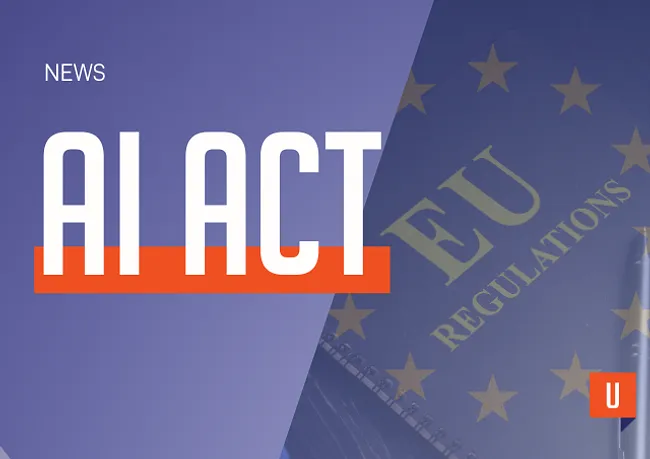Our team would be happy to share their expertise to help you get the answers you are looking for. Feel free to contact us about your situation and any questions you may have.
We look forward to hearing from you!
Curious what this means for you? Find out more about this new legislation and its impact in this article.
On May 21, 2024, the European Council officially approved the AI Act—a landmark piece of legislation that sets the first comprehensive legal framework for artificial intelligence (AI) in the world. This new regulation has already entered the first stages of implementation in the EU this year and, as the first of its kind, is expected to shape future global standards surrounding artificial intelligence.
The primary goal of the AI Act is to protect the fundamental rights of EU citizens and encourage responsible AI innovation across Europe, ensuring that the development and use of AI systems is handled in a secure and transparent way throughout the European Union (EU).
The impact of this regulation will be felt by both public institutions and private companies operating in the EU market as they may need to adjust certain aspects of AI use in their business in order to remain compliant.
A key principle of the legislation is risk assessment. For example, before high-risk AI systems are implemented, organizations must evaluate how they might affect individuals’ rights and freedoms—such as privacy, bias, or discrimination— and review and/or adjust their practices to be compliant with the regulation aiming to protect the user and their important data.
The AI Act introduces a tiered framework based on risk levels:
For recruitment agencies, like Undutchables, and HR departments in companies, whether small or large, this means that AI tools used for hiring and candidate screening must meet new standards of transparency and fairness, particularly when they influence decision-making processes. In addition, the human touch must not be replaced by AI, but rather employees must be trained in how to work with AI in a compliant and supportive way while also maintaining oversight in order to ensure continued security and fairness in practice.
The EU has established several new bodies to handle the implementation and effective enforcement of the AI Act. These include:
The regulation was published last summer and was officially put into effect on August 1st, 2024. However, full enforcement takes time, so the council has created an implementation plan spanning two years. In February of this year the first stage of the implementation was already applied, and the next milestone is expected to come into effect this May. This gradual implementation plan will allow companies the time they need to make any necessary changes in order to be compliant with the new regulations.
For international professionals and companies operating in or hiring within the EU, the AI Act signals a positive shift toward more ethical AI usage in the workplace. Tools that influence employment decisions—such as AI-powered CV screeners or video interview analyzers— and the individuals using them, will need to meet higher standards of accountability. At Undutchables, we are committed to supporting both clients and candidates as these changes roll out, ensuring recruitment processes remain fair, transparent, and human-centered.
Want to learn more about what the AI Act means for you? Check out the handy resources below or reach out to our team for more information about how this new regulation will impact hiring practices in the coming years and for advice on future-proofing your recruitment strategy.
https://artificialintelligenceact.eu/
https://digital-strategy.ec.europa.eu/en/policies/ai-office
https://digital-strategy.ec.europa.eu/en/policies/regulatory-framework-ai
https://www.digitaleoverheid.nl/nieuws/europese-ai-act-goedgekeurd/
https://business.gov.nl/amendment/artificial-intelligence-act/
Our team would be happy to share their expertise to help you get the answers you are looking for. Feel free to contact us about your situation and any questions you may have.
We look forward to hearing from you!

We only need a few personal details, thanks!

